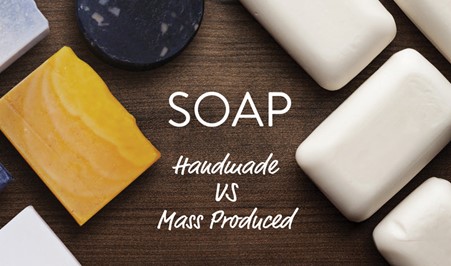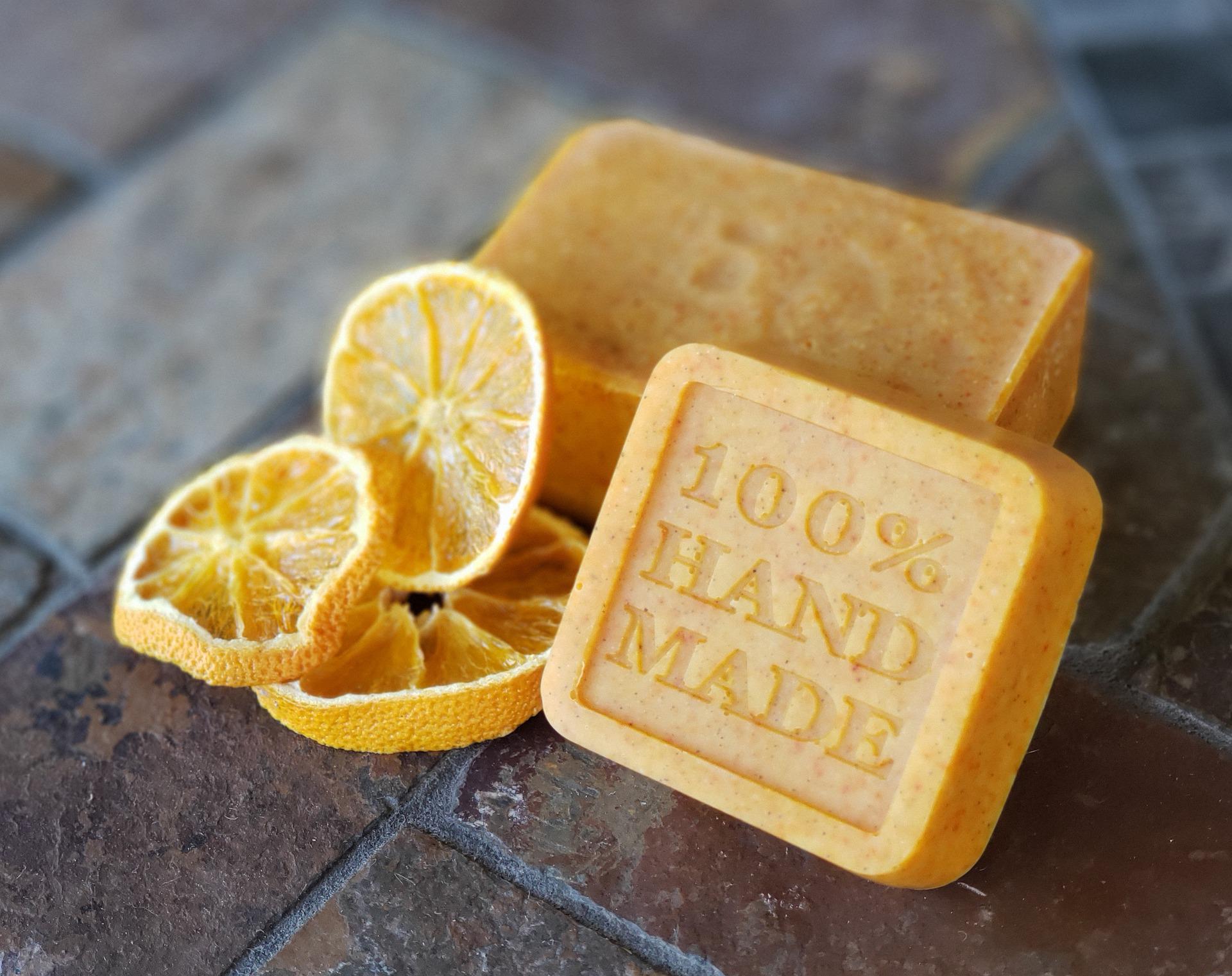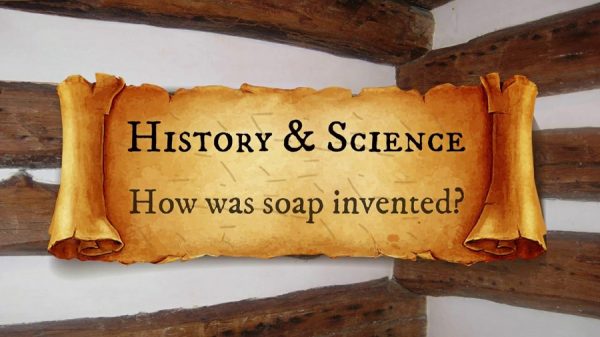Six Important Reasons Why You Should Pick Handmade Soap Over Mass Produced Soap
1. Handmade soap is actually soap
Handmade soap is made through a chemical reaction (saponification) between lye (sodium hydroxide) and oils/fats. There are leftover oils (also called superfat) in the soap that will nurture your skin (amount and type of oils left will depend on the recipe).
Mass produced soaps are often made by combining detergents, lathering agents and synthetic ingredients, and can by definition not be called soap (make sure the label actually says soap). Handmade soap is milder and keeps the skin healthier.
2. Handmade soap contains glycerin
During saponification glycerin is created. Glycerin stays on your skin and attracts moisture from the air, which will keep your skin moisturised.
Many companies remove glycerin from their soaps, which will create a drying bar of soap. The leftover glycerin gets placed into moisturisers, which your skin will need due to the soap that strips your skin of its natural oils.
Mass produced moisturizer
Several factories remove glycerin from their soaps and place it into moisturisers, which your skin will need to make up for using their detergent “soap”.
3. Overall attention to ingredients
Handmade soaps contain oils and glycerin (plus the occasional colorant, scent or additive such as flower petals), while mass produced soaps are detergents with high level of fragrance levels and little to no beneficial ingredients.
Palm oil is widely used in mass produced soap, even though this oil is known to be hurtful to wildlife. It is also cheap, like animal fats, which are also often used. Palm oil and animal fats can make great soap (when not combined with detergents), but we choose to use neither.
4. Attention to health and safety
Some ingredients, such as Methylisothiazolinone, are known to be damaging to people, but they are still found in countless products. While researching and hunting down our selection of ‘fragrances’ we also found an alarming number of fragrances with the warnings “may cause cancer”, “possible risk of harm to the unborn child,” and “possible risk of impaired fertility.”
These are ‘fragrances’ sold to soap makers as well, so make sure that your supplier of skin products is aware of their ingredients (and that they care about the safety information that’s provided by their suppliers).
Mass produced soap
Countless skin care products contain harmful ingredients, so be sure to choose your supplier carefully.
5. Social consciousness and ethics
Soap makers test their own soaps (and possibly some family members and friends when it’s deemed safe), and as a soap maker it is incredibly easy to tell whether or not a soap is safe to use.
Here at Susan’s Soap Shop, we ensure that our ingredients are responsibly sourced.
6. Unique artisanal designs
Most soap makers have their own unique style and a lot of us make our own amazing recipes. Handmade soaps are almost always better than mass produced soaps (there are obviously exceptions to both sides) when it comes to ingredients, mildness and moisturizing abilities, and there are also an abundance of fun patterns, shapes, colours and scents to choose from.
Susan’s Soap Shop carries a big selection of different styles, including all natural options (which you won’t find among mass produced soaps), and products unique to our shop only.




